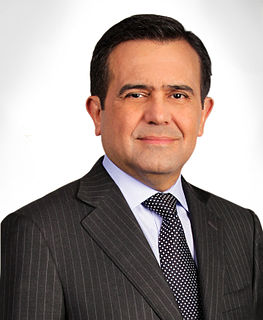A Quote by Ted Nordhaus
All of the barriers to innovation in the energy sector are arguments for a big commitment to public investment. Only the public sector can make the kind of long-term, common investments that we need to overcome those barriers to innovation.
Related Quotes
Energy is a sector of the economy that has been particularly resistant to innovation. This is precisely the problem. It is why we are still dependant on energy sources that are 100 to 150 years old while virtually every other sector of the economy has transformed itself. This is why we believe that the faith that many environmentalists still hold that carbon regulations and taxes will drive sufficient private sector investment into energy markets to create the kind of innovation we need is unfounded.
Private sector unionization is down to practically seven percent. Meanwhile the public sector unions have kind of sustained themselves [even] under attack, but in the last few years, there's been a sharp [increase in the] attack on public sector unions, which Barack Obama has participated in, in fact. When you freeze salaries of federal workers, that's equivalent to taxing public sector people.
The government also has to get the public rules right. That means putting a price on carbon, so the cleaner forms of energy become more competitive. As soon as that happens, a tidal wave of new capital, innovation and entrepreneurship will flood into the clean energy space - creating new jobs and opportunities for Americans of all walks of life. We did that for the internet, with public investments in the basic system through the Pentagon, followed by rules that encouraged innovation and competition. And that is why the internet took off in the United States first.

































